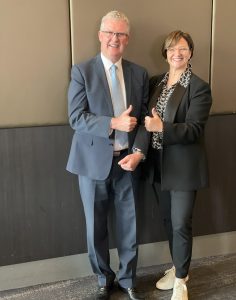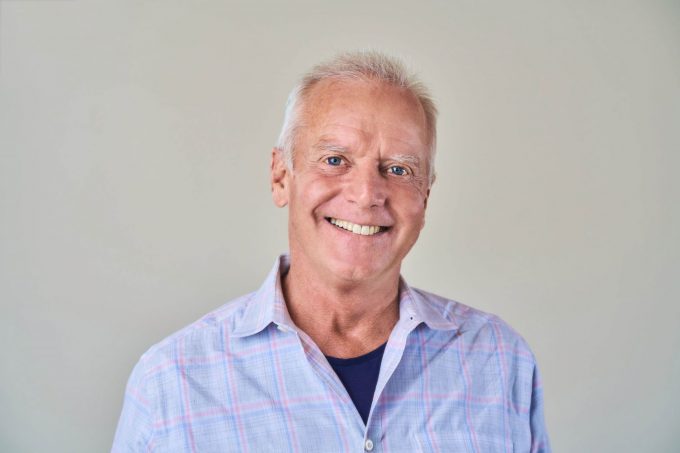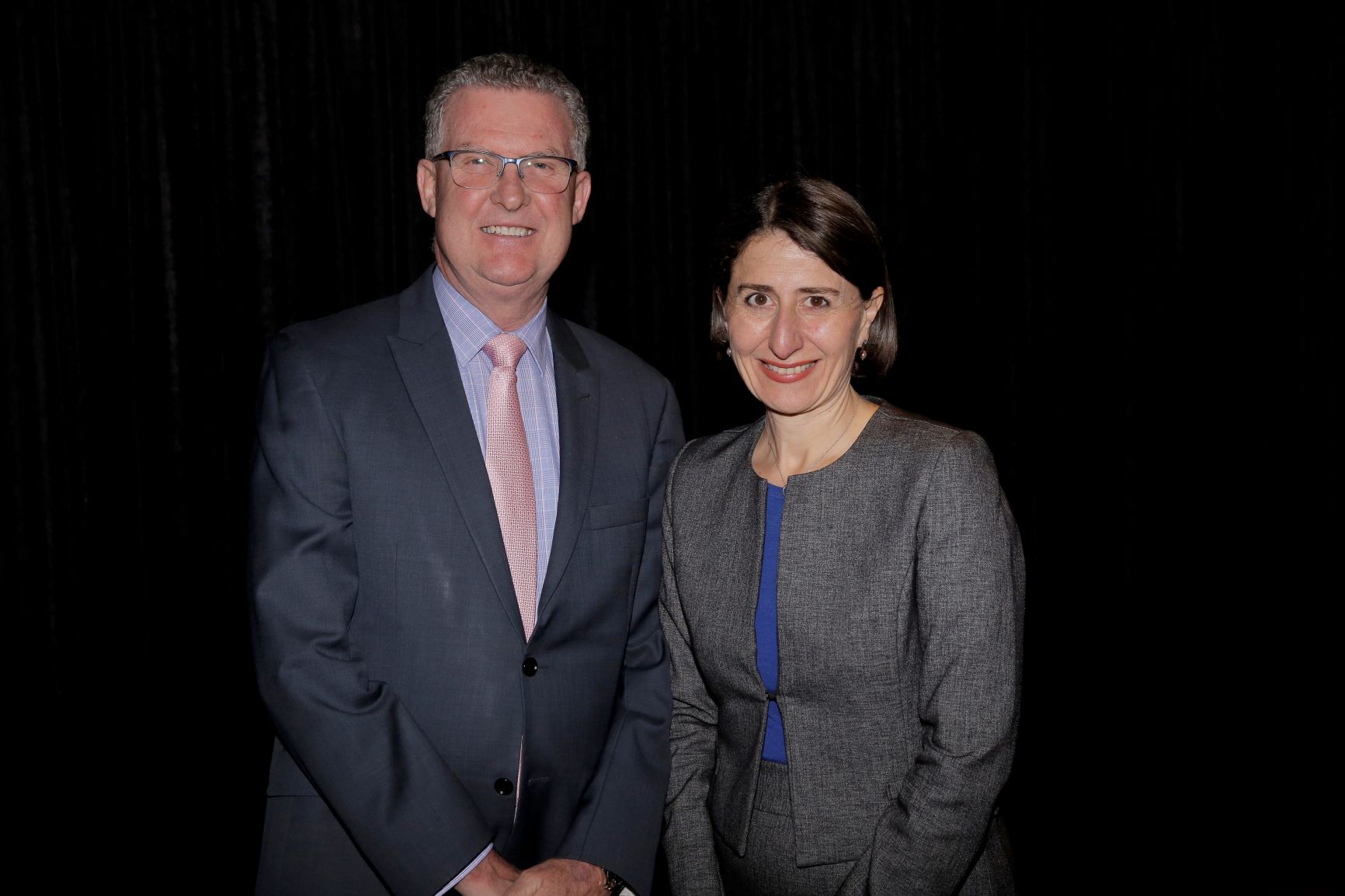
How to solve a problem like the hospitality skills crisis
The sector needs to attract skilled workers & not just fill gaps: "This is where the real work starts" says Michael Johnson head of the accommodation industry
The hospitality skills shortage is not a new struggle, only exacerbated by the pandemic that highlighted how heavily the sector relies on international students and working holidaymakers. And with many Aussies not attracted to the industry (recent research revealed it’s one of their least desirable job choices) there is no quick fix.
But industry leaders are working hard to change this…
Earlier this month in his speech at AHICE, Tourism Accommodation Australia NSW CEO and acting CEO of the Accommodation Association, Michael Johnson acknowledged that the skills crisis remains an issue for our industry.
And while the industry has been through so many challenges in the last few years, things are beginning to look up.

He said: “They look relatively great in fact. But the reality is, despite all the effort we are now essentially back to where we started when it comes to skills and jobs.
“We have stopped the bleeding, but the original wound is still there. This is where the real work starts.”
He explained, from the moment the pandemic hit, Australia began to lose tens of thousands of international students, working holidaymakers, and temporary skilled visa holders who were front and back-of-house workers.
“They were told to go home by the government of the day and they were unable to return and couldn’t be replaced,” he said.
“Before the pandemic, almost 630,000 international students and 150,000 Working Holiday Makers (WHM) were employed each year in Australia, many of them worked in our hotels and restaurants right across the country
“As restrictions and rolling lockdowns began to bite deeper we began to lose local workers as well.”
Our latest AccomNews print issue is available now. Read it HERE
However, when things began to open up again, the shortage of workers across the country hampered the sector’s recovery.
“Hotels simply couldn’t get chefs, cooks, and bar staff, many had to close bistros, reduce operating hours, or shut on certain days. Many still do,” Mr Johnson said.
“Hotels did not have enough housekeeping staff to clean rooms daily and had to run with a skeleton staff and reduce hours at a time they sorely needed revenue.
“By February 2022 there were more than 100,000 positions vacant across the hospitality sector and no single, quick way to fix the problem.”
Last year TAA/AHA and AA focused efforts on getting overseas workers back to Australian shores to fill the gaps, and to reduce the huge backlog of visa applications. Last July there was a backlog of 959,000 unresolved applications, with processing timelines blowing out to more than 19 months for half of all potential migrants seeking to come to Australia.
The newly elected Albanese Government committed $36.1M to employ 500 staff in the home affairs department to help clear the backlog. The result is that today the number of unresolved visa applications has almost halved to below 550,000.
Other incentives were helpful for the hospitality sector. Last year, working holidaymakers arriving in Australia were eligible for a refund of their visa applications- saving visa holders around $500.

“We also lobbied for The Temporary Skilled Migration Income Threshold (TSMIT) to be increased at a level that will not inadvertently exclude occupations in the accommodation and hospitality industry which might otherwise be eligible for skilled migration,” Mr Johnson said.
“Home Affairs Minister Claire O’Neil advised as of July 1 the TISMIT will be raised from $53,900 to $70,000. Much less than the union demands of $90,000. Some still think it’s too high, but we will be keeping a close eye on this situation – particularly the impact on rural and regional areas.
“It’s pleasing to see our ongoing efforts in conjunction with the government have borne fruit.
Mr Johnson added that there are now more than 139,000 working holidaymakers and 583,000 international students back in Australia- roughly 93 percent of pre-COVID levels.

However, attracting overseas help is only part of the solution and to bridge the skills gap in the long term requires looking inward. It won’t be easy, the shortage is complicated and many factors contribute, not least the sector’s image problem.
Worryingly, in recent research Aussies identified hospitality and accommodation jobs within the worst three industries in Australia.
Immigration assistance and advice platform Immigration to Australia commissioned the survey of an independent panel of 1002 Australians to gauge their opinions on the best three and worst three industries to work in. Respondents were asked to choose the best and worst three industries for jobs for immigrants, from a list of 17 key industries in Australia and their corresponding average weekly salaries, using Australian Bureau of Statistics data.
When making their decisions, respondents were asked to consider the wages and responsibilities of the jobs in those industries. They identified the best three industries for jobs as mining, construction, and utilities and the worst three as retail, accommodation and food, and arts and recreation.
The full results, with age and state breakdowns, can be found HERE
Retail trade, which placed second last in the pay-grade scale, attracted the highest proportion of votes (46 percent) for the worst industry. Accommodation and food services followed closely behind, chosen by 45 percent of respondents. Coming in third place was arts and recreation services, chosen by a third (33 percent) of respondents.
Significantly, many young Australians (who are the most likely age group to already work in accommodation and food services) chose it as one of the worst three industries in Australia.
About the results, Founder and CEO of Immigration to Australia Alon Rajic said: “While there is some correlation between best and worst industries and the wages these industries pay, it appears that a good proportion of Australians agree that some high-paying industries are not worth working in due to difficulty of their job tasks.”

To help fill the skills gap with local workers Mr Johnson said TAA along with AA has been targeting mature workers and supporting women back to the industry.
“The Federal Government has made some changes to the pension so retirees can do some work and not lose benefits and are in discussions to introduce changes to help encourage more mature-aged people into the industry and encourage businesses to employ mature-aged apprentices,” he said.
TAA and AA have also called for more affordable and available childcare to encourage women to return to the workforce in next week’s budget.
And there is more to be done…
Mr Johnson said there was more to be done to attract young Australians to the accommodation and hospitality sectors.
“We also need to implement workplace internships for the most disadvantaged, increase the mobility of the workforce and the mobility of young Australians by expanding ‘gap year’ schemes,” he said.

The causes of the skills shortage are complex and addressing them will be ongoing. The Australian housing crisis is an important issue that also needs to be tackled.
“One of the greatest handbrakes on worker mobility is housing availability, particularly rentals, and cost,” Mr Johnson said.
“You can’t get workers to go to Noosa, Byron, Busselton, or Broome if there is nowhere to live. We have met with both federal and state governments about short-term rental accommodation concerns, some local councils are also looking to make changes as the problem gets worse.
“The Accommodation Association RTP business has been working with the Victorian Government and placed more than 300 staff in our hotels in the last six months.”
Good long-term planning is required…
Mr Johnson said that long-term changes were required to help change the industry’s perception.
“We are currently in a closed tender with Austrade to develop a supernational Hospitality, Tourism, and Travel Portal – for jobs, training, and assisting in changing the perception of our youth,” he said.
And what about changing the negative opinion that Aussies have towards working in the industry?
Mr Johnson said we need to “convince the next generation, including their parents, that accommodation and hospitality is a viable, skilled, rewarding and life-long career is the only way we make sure this problem is not still here in ten years’ time!”
Mandy has over 17 years of accommodation and tourism industry writing experience and is Editor of AccomNews & Resort News, Publisher of SchoolNews & Director of Multimedia Pty Ltd. She is a retired registered nurse with a 25-year NHS career that followed a few unforgettable years in hotel housekeeping.







